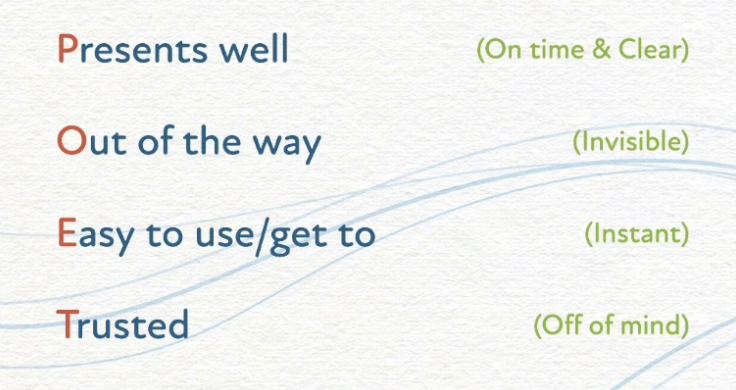POET compass is a mnemonic that I learned about from the Waves of Focus online course and its a tool that’s designed for qualitatively assessing how well something (e.g. physical, digital) is organized.
Note: I’m currently enrolled in Kourosh’s Waves of Focus program. It’s an online course focused on individuals with the wandering mind, helping us build tools and skills to organize our personal and professional work and help us with, for lack of a better word, “productivity”. In reality, I believe this course has just as much to do with gaining skills to deal with difficult, often negative, emotions like anxiety and frustration. I’ll probably post a series of entries about this program in more depth however in the meantime, I wanted to write to just share a little about one of the tools: POET compass.
What is POET?
- P – presents well (on time and clear)
- O – out of the way (invisible)
- E – easy to use/get to (instant)
- T – trusted (off of mind)

Although POET is used to measure how well something is organized, you can equally and similarly evaluate if something is disorganized. We can ask ourselves, “Is it hard to use (or get to), is something in the way, does it not come to mind (when we need it), am I worried about it (too much on the mind”. These questions stem from frustration and out of frustration, we seek organization.
In another post, I’ll elaborate more on each of the measurements above and what sort of questions we may want to further ask ourselves when we are working on organizing. Finally, what I really love about this entire module (on beginnings of organization) is that the notion of organization is not defined as a black or white, a binary. It’s not “yes, it is organized” or “no, it is not organized.” In fact, organization is not even consider a spectrum and instead, it is defined as something with an infinite number of possibilities. It’s a much more functional and compassionate approach to organization.